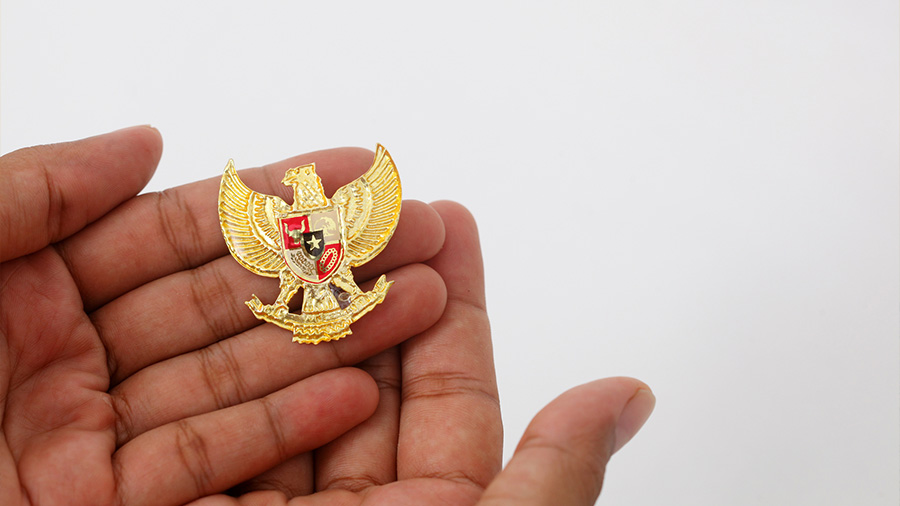Indonesia Opts to Remain Neutral in US v China Divides
Jakarta rejects US notions of forming a specific military alliance
Just a week after hosting the G20 summit, the US and Indonesian defense chiefs came away from their meeting on Monday (November 21) with apparently differing understandings of how closely the two countries are militarily aligned.
Appearing at a press briefing in Jakarta after talks with his Indonesian counterpart, US Secretary of Defense Lloyd Austin spoke of deepening defense ties and increasing the “interoperability” of the two countries’ weaponry. Indonesian Defense Minister Prabowo Subianto repeatedly defended his country’s strong relations with America’s two biggest adversaries, Russia and China.
“The United States is proud to partner with you as we work together to advance our shared vision of a free and open Indo-Pacific,” Austin said. But Subianto reminded the press of Jakarta’s neutral geopolitical stance, saying, “I like to emphasize that Indonesia always takes the position of trying to maintain the best relationships with all nations, especially all the major powers.”
The talks came amid rising tensions between the US and China, which have clashed increasingly over Washington’s alleged meddling in Beijing’s relationship with Taiwan. China cut off defense and climate ties with the US in August after House Speaker Nancy Pelosi defied warnings against visiting Taiwan, a self-governing island over which Beijing claims sovereignty.
Indonesia participated in joint military drills with the US in August and agreed last week to resume joint military exercises and training with China. Jakarta also buys Chinese and Russian weaponry.
Asked about Western pressure to cut off those defense procurements, Subianto said, “We have a longstanding relationship with Russia and China. We have relationships with Russia for many, many years. Our military uses Russian equipment. We value our relationship with China. As an independent and sovereign country, we reserve the right to use and acquire equipment from many, many countries.”
The talks came on the same day that US Vice President Kamala Harris traveled to the Palawan island chain in the Philippines to demonstrate Washington’s support for Southeast Asian allies in their territorial disputes with China. “We are meeting as the world is grappling with assaults on the rules-based international order, especially Russia’s unprovoked invasion against Ukraine,” Austin said.
However, many nations see the phrase ‘rules-based international order’ as a metaphor for continuing American hegemony, which China and Russia are specifically against.
Subianto said Indonesia sees China as a friendly nation and expects to resolve overlapping territorial claims through negotiation. “However, we do emphasize that Indonesia will defend its sovereignty and we will defend our independence.”
Indonesia is one of the ASEAN trade blocs’ largest members and has the largest Muslim population in the world. It has recently made a formal approach to join the BRICS grouping and via ASEAN it has Free Trade Agreements with Australia, New Zealand, Japan, South Korea, China, Hong Kong, and India. Indonesia is also a signatory to the RCEP FTA between ASEAN and Australia, China, Japan, New Zealand, and South Korea and has an agreement with Chile. Indonesia is negotiating other FTAs with the European Union (EU), India, Tunisia, and Turkey as well as reviewing its trade agreements with Japan and Pakistan. Its main trade partners are China, followed by the United States, Japan, Singapore, and India.
Indonesia, via ASEAN, is also a guest attendee to the Shanghai Cooperation Organisation, the developing Eurasian security bloc that also includes China and Russia.
The dialogue indicates that Indonesia will remain on polite and constructive terms with the United States, however, sees itself as rather detached from the ‘American values’ philosophy as a Muslim nation, while it already employs a democratic system. Given its geographical position and existing security and trade ties with Asia, unless serious issues break out in Indonesia, its closest allies are more likely to be with ASEAN, Beijing, Saudi Arabia, and Moscow than Washington. It is certainly not going a be a party to any Western security pact – an issue that will create some stresses with neighboring – and much smaller in terms of economy and population – Australia.
NB: The introductory image to this article is the Indonesian Garuda, a mythical bird, highly symbolic of Indonesia’s independence, which it obtained from the Dutch Empire in 1949. The country has long put its colonial past behind it and is unlikely to be warm to any concept of joining any contemporary Western alliances.
About Us
ASEAN Briefing is produced by Dezan Shira & Associates. The firm assists foreign investors throughout Asia and maintains offices throughout ASEAN, including in Singapore, Hanoi, Ho Chi Minh City, and Da Nang in Vietnam, Munich, and Esen in Germany, Boston, and Salt Lake City in the United States, Milan, Conegliano, and Udine in Italy, in addition to Jakarta, and Batam in Indonesia. We also have partner firms in Malaysia, Bangladesh, the Philippines, and Thailand as well as our practices in China and India. Please contact us at asia@dezshira.com or visit our website at www.dezshira.com.










